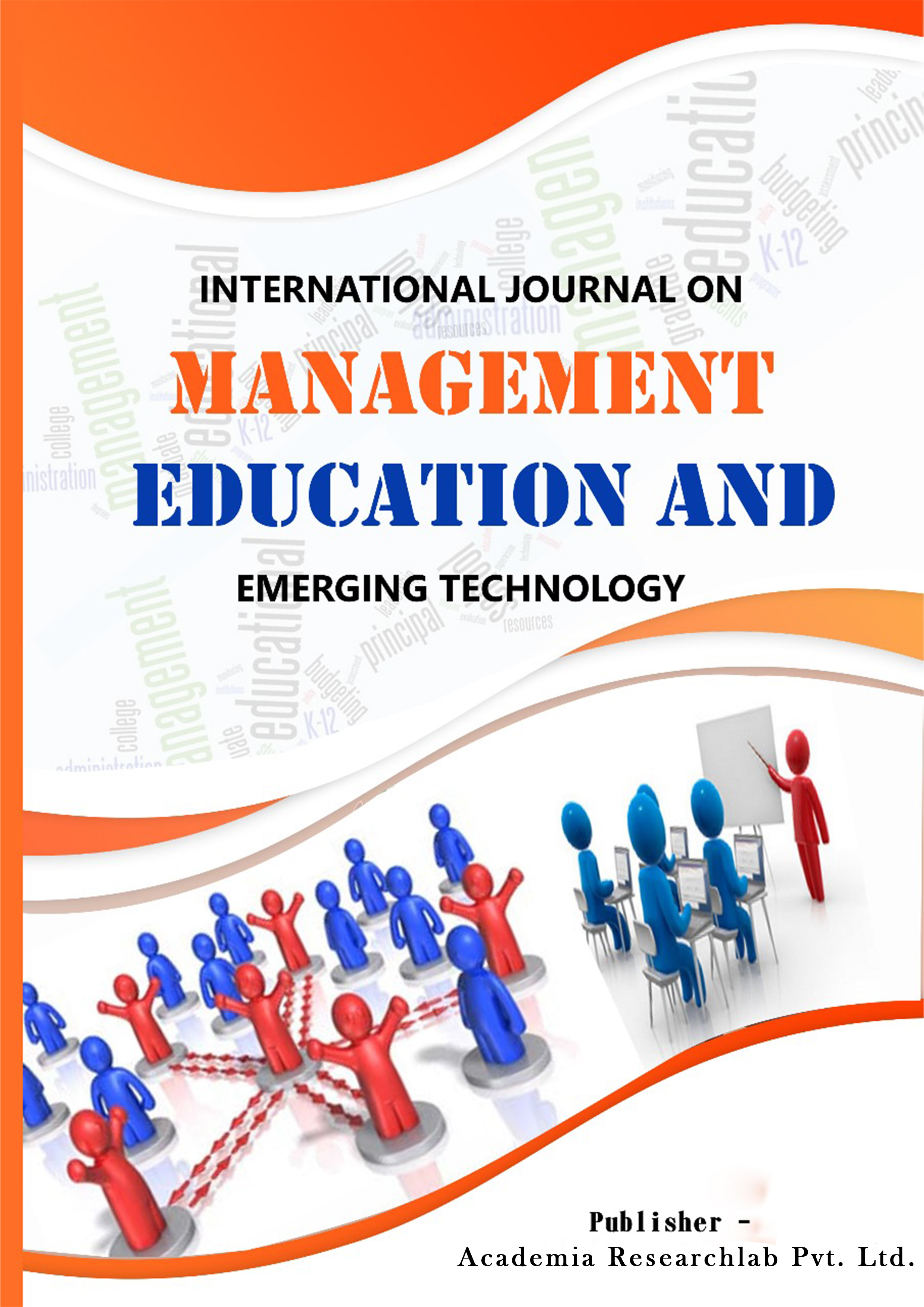Examining the Determinants of Job Satisfaction and Turnover Intention among Academicians: Evidence from Libyan Public Universities
Keywords:
Job Satisfaction, Turnover Intention, Compensation, ,Organisational Commitment, Career Development, Perceived Organisational Support, Higher Education, LibyaAbstract
Employee turnover among academic staff poses a significant threat to the performance and sustainability of higher education institutions, particularly in developing countries like Libya. This study explores the key factors influencing job satisfaction and turnover intention among faculty in Libyan public universities, focusing on compensation, career development, and organisational commitment. It also examines job satisfaction as a mediating factor and perceived organisational support as a moderating variable in the relationship between satisfaction and turnover intention. Drawing on the Two-Factor Theory, the Three-Component Model of Organisational Commitment, and Employee Turnover Theory, the research uses a quantitative approach with data collected through structured questionnaires distributed to academic staff. The study aims to fill research gaps by analyzing how institutional and individual factors shape faculty decisions to stay or leave. Literature suggests that dissatisfaction with pay, limited career growth, and weak commitment increase turnover intentions, while job satisfaction can mitigate these effects. Furthermore, perceived organisational support may reduce the negative impact of low job satisfaction. With growing faculty turnover driven by political instability, poor infrastructure, and limited institutional backing, this research offers practical insights for policymakers and administrators. The findings are expected to inform strategies that enhance staff retention by improving compensation, supporting career development, and fostering a supportive organisational culture, ultimately strengthening the resilience of Libyan public universities.
References
Abet, W. A., Okolie, U. C., & Elom, M. E. (2023). The impact of organizational commitment on employee turnover intention. Journal of Human Resource Management, 11(2), 45–58.
Ahmad Saufi, R. A., Zulkifli, R. A., & Rahman, N. A. A. (2023). Faculty retention and its impact on university performance. Higher Education Review, 55(1), 89–103.
Alhempi, R., Rasyid, H., & Prihatin, P. (2021). Compensation and turnover intention: A paradox in higher education. International Journal of Management Studies, 28(1), 1–13.
Ali Elabbar, A. (2022). Challenges and prospects of academic satisfaction in Libyan higher education. International Journal of Academic Research in Business and Social Sciences, 12(4), 21–38.
Alzubi, Y. (2018). Academic turnover in developing countries: An emerging crisis. Journal of Global Higher Education, 5(3), 43–57.
Arasanmi, C. N., & Krishna, A. (2019). Linking perceived organizational support to employee turnover intentions: The moderating role of psychological empowerment. International Journal of Organizational Analysis, 27(3), 619–636.
Artha, R. B., & Jahja, Y. P. (2023). The influence of compensation on employee retention. Jurnal Ekonomi dan Bisnis, 25(1), 14–27.
Bell, E., Bryman, A., & Harley, B. (2022). Business research methods (6th ed.). Oxford University Press.
Bredan, A., El-Ajnaf, A., & Benamer, H. T. (2023). Scientific research output in Libya: A regional comparison. African Journal of Research, 29(2), 66–74.
Chen, Y., Zhou, M., & Li, X. (2023). Job satisfaction and turnover intention: A meta-analytic review. Human Resource Development Quarterly, 34(1), 22–44.
Creswell, J. W., & Creswell, J. D. (2018). Research design: Qualitative, quantitative, and mixed methods approaches (5th ed.). SAGE Publications.
Eisenberger, R., Huntington, R., Hutchison, S., & Sowa, D. (1986). Perceived organizational support. Journal of Applied Psychology, 71(3), 500–507.
Falahat, M., Lee, Y. Y., & Sulaiman, A. (2019). Academic brain drain: Retaining talent in Malaysian universities. Asian Journal of University Education, 15(1), 55–72.
Giao, H. N. K., Vuong, B. N., & Nam, N. D. (2020). Perceived organizational support and its role in reducing turnover intention. International Journal of Business and Society, 21(3), 1024–1039.
Ginting, N., Sembiring, B. K., & Simanjuntak, T. (2023). Compensation and job satisfaction as predictors of turnover intention. Asian Social Science, 19(2), 88–97.
Ginting, N., Sembiring, B. K., & Simanjuntak, T. (2023). Compensation and job satisfaction as predictors of turnover intention. Asian Social Science, 19(2), 88–97.
Hair, J. F., Black, W. C., Babin, B. J., & Anderson, R. E. (2019). Multivariate data analysis (8th ed.). Cengage Learning.
Herzberg, F., Mausner, B., & Snyderman, B. B. (1959). The Motivation to Work. New York: John Wiley & Sons.
Hidayah, N., & Ananda, R. (2021). Career development and employee retention in higher education. Journal of Education and Practice, 12(3), 134–142.
Hom, P. W., Lee, T. W., Shaw, J. D., & Hausknecht, J. P. (2017). One hundred years of employee turnover theory and research. Journal of Applied Psychology, 102(3), 530–545.
Hussain, A., Ahmad, S., & Nawaz, A. (2020). Organisational commitment and employee retention in the education sector. Journal of Educational Administration, 58(4), 452–467.
Jain, A., & Sullivan, S. E. (2020). Organizational commitment and its impact on employee turnover: A longitudinal perspective. Human Resource Management Review, 30(2), 100695.
K. Hussain, R., Hafeez, M., & Malik, M. A. (2023). The mediating role of job satisfaction in the relationship between career development and turnover intention. Global Journal of Management and Business Research, 23(1), 33–40.
Kim, T. (2017). A framework for employee career development. Human Resource Development Review, 16(4), 401–420.
Krejcie, R. V., & Morgan, D. W. (1970). Determining sample size for research activities. Educational and Psychological Measurement, 30, 607–610.
Maslow, A. H. (1943). A theory of human motivation. Psychological Review, 50(4), 370–396.
Meyer, J. P., & Allen, N. J. (1991). A three-component conceptualization of organizational commitment. Human Resource Management Review, 1(1), 61–89.
MHESR (Ministry of Higher Education and Scientific Research). (2023). Report on National Strategy for Higher Education in Libya. Tripoli, Libya.
Mobley, W. H. (1977). Intermediate linkages in the relationship between job satisfaction and employee turnover. Journal of Applied Psychology, 62(2), 237–240.
O’Connor, S. J. (2018). Job satisfaction and faculty turnover in universities. Journal of Academic Employment Studies, 5(2), 50–68.
Orpina, P., Riyanto, S., & Sugiarto, R. (2022). Exploring the impact of job satisfaction on turnover intention. International Journal of Social Science and Business, 6(2), 101–111.
Raharjo, K., Suryadi, N., & Nuryakin, M. (2022). Enhancing academic staff retention through career development. Journal of Higher Education Policy and Management, 44(1), 88–104.
Saunders, M., Lewis, P., & Thornhill, A. (2019). Research methods for business students (8th ed.). Pearson Education.
Serang, F., Nugroho, S. D., & Prasetya, A. (2023). Compensation systems and employee retention. International Journal of Human Resource Studies, 13(1), 22–35.
Spector, P. E. (1997). Job Satisfaction: Application, Assessment, Causes, and Consequences. Sage Publications.
Steil, A. V., Grespan, L. A., & Bittencourt, L. F. (2019). Antecedents of turnover intention in Portugal: A meta-analytical review. International Journal of Human Resource Studies, 9(1), 25–47.
Tran, Q. T., Ha, N. M., & Nguyen, H. P. (2020). Job satisfaction and employee turnover intention: Revisiting the theory. International Journal of Business and Society, 21(4), 1830–1843.
Wong, Y. T., & Cheng, C. Y. (2020). Turnover intention and actual turnover: A study among faculty in Asian universities. Asia Pacific Journal of Human Resources, 58(3), 312–328.
Zhao, X., Lynch, J. G., & Chen, Q. (2010). Reconsidering Baron and Kenny: Myths and truths about mediation analysis. Journal of Consumer Research, 37(2), 197–206.
Zhu, Q., Song, J., & Zhang, Y. (2022). Understanding organizational commitment and its implications for turnover intentions. Journal of Management Studies, 59(1), 29–54.
Additional Files
Published
How to Cite
Issue
Section
License
Copyright (c) 2024 International Journal on Management Education and Emerging Technology(IJMEET)

This work is licensed under a Creative Commons Attribution-NonCommercial-NoDerivatives 4.0 International License.





